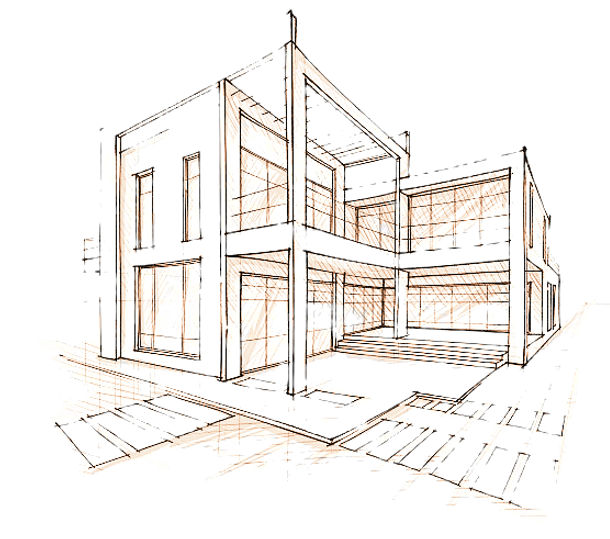


Beste wensen voor 2026
Wij wensen u een nieuw jaar vol gezondheid, vertrouwen en positieve vooruitgang.
Bedankt voor het geschonken vertrouwen in het afgelopen jaar.
Ook in 2026 staan wij graag aan uw zijde met onafhankelijke expertise en betrokken begeleiding.
.png)

Buildings viewed up close by VG Expert



Your partners in construction expertise
Assistance VO in private and communal & Expertise construction errors and damage, also problems with contractors and architects, misleading sale of a home, technical advisor in legal proceedings, etc.
Please call or email us - 0472 59 18 98

.png)
_edited.png)
Assistance VO in private and communal & Expertise construction errors and damage, also problems with contractors and architects, misleading sale of a home, technical advisor in legal proceedings, etc.
Please call or email us - 0472 59 18 98


And read what others say about my approach and expertise.


Sound-insulating high-efficiency glass
Glass with factor between U = 0.4 W/m2K and U = 0.6 W/m2K
High-efficiency glass+++, also called triple glazing plus, has a U-value between 0.40W/qmK and 0.60W/qmK according to the new glass standard NBN S 23-002. The glass construction is 4/12/4/12/4 (4mm float glass / 12mm pane separation / 4mm float glass / 12mm pane separation / 4mm float glass).
How does soundproof glass work?
Loudness is displayed in decibels (dB). Noise is not disturbing if it does not exceed the limit of 35 dB during the day and 30 dB at night. Soundproof glazing protects against noise from all possible sources of noise pollution, such as street noise, city traffic, highways, proximity to railways or airports, and so on.
Sound-resistant glazing increases the acoustic comfort in the home and has a better sound-absorbing effect than ordinary double or triple glazing.
Advantages of sound-insulating glass
-
Insulates better than double or triple glazing.
-
Optimal peace and quiet in a residential environment.
-
Limit the impact noise of rain and hail on veranda windows.
-
Sound-insulating high-efficiency glass significantly reduces energy costs
Disadvantages of sound-insulating glass
Sound-insulating high-performance glass is heavier and thicker than double glazing and therefore cannot simply be installed in all profiles.
High-efficiency glass insulates up to 12 times better than single glazing: how much do you save on energy by replacing your windows?
If we want to achieve the climate goals, we will all have to take action. You can do your part by renovating your outdated home in an energy-efficient way, for example by insulating your roof or facade or installing high-efficiency glass. That is not only good for the environment, but also for your wallet. Construction site Livios found out how much you can save by replacing your old windows and which premiums you can apply for.
What makes high-performance glass so special?
High-efficiency glazing has a better insulation value than classic double glazing. Compared to single glazing, the difference is even greater. High-efficiency glass has a thin, insulating, colorless metal layer on the inside of one of the glass plates. Furthermore, the space between the two glass plates is filled with a noble gas instead of ordinary air. Installing high-efficiency glass not only provides more comfort in your home, you also save a lot on your energy bill.
High-performance glass insulates five times better than single glazing and two to three times better than regular double glazing. When renovating, replacing your windows is therefore highly recommended, especially if you know that poorly insulating windows create up to 40 percent heat loss in your home.
Poorly insulated homes hit hard by high energy prices:
Who is high-efficiency glass interesting for?
You get the most return if you replace single glazing. But high-performance glazing is actually worth considering in every situation, even if your home is already equipped with double glazing. High-efficiency glass is recommended, especially in rooms where you often spend time and which you heat. Think of the living room, kitchen, bedroom and bathroom. The larger the window, the higher the savings.
On average, you should expect a price around 80 euros/m² for high-efficiency glass. On top of that there are installation costs. In total you quickly arrive at a price of around 130 euros per m². It is important to know that you may have to replace the profiles if they are not adapted to the new glazing. Replacing single-glazed windows with high-efficiency glass is therefore almost twice as expensive as replacing double glazing. Old profiles usually also insulate less well, so it may be more interesting to replace the entire window (including the old profiles).
Since many factors determine the price of high-efficiency glass, it is advisable to request a customized quote.
Reading tip: View here which exterior carpentry suits your home best.
Triple glazing: what are the advantages and disadvantages?
In addition to high-efficiency glass, you can also opt for triple glazing. That type of glass insulates up to 12 times better than single glazing and 6 times better than double glazing. Triple glazing consists of three panes of glass with two layers of argon gas or krypton gas in between.
Anyone interested in triple glazing must make some practical considerations. Triple glazing is slightly more expensive to purchase than high-efficiency glass and involves high installation costs. Triple glazing is also about 10 kilograms/m² heavier than double glazing. As a result, heavier profiles are required and it is also less obvious to open, say, a sliding window. A crane is often required for installation. Triple glazing is almost never a good idea during renovation because in most cases your windows will insulate better than the walls. This can cause condensation on the walls. Triple glazing is therefore mainly found in energy-neutral houses or passive houses.
Did you know that there is also acoustic and sun-resistant glass? Read more about it here.
How much can you save with high-efficiency glazing?
Some examples show how you can make significant savings with well-insulated glass.
Example 1: Your home now has single glazing with a PVC profile. The windows were installed after the year 2000. In this situation we assume that the house is heated by gas.
If you choose high-efficiency glazing with a total surface area of 24m² - the average glass surface in a semi-detached building - you will save 416 m³ of gas annually, good for 437 euros on your energy bill.
Switching from 'normal' double glazing to high-performance glazing saves 35 euros. For triple glazing that is 71 euros.
Example 2: We take the same parameters, only now we heat with electricity.
There you will immediately see that you will also save a lot. You then use 3,856 kWh less every year. In concrete terms, this means 1,581 euros on your energy bill.
When switching from double glazing, the saving is 128 euros. If you choose triple glazing, you save 257 euros.
Please note: The target prices are based on current gas and electricity prices. These can change quickly.
What premium can you apply for for high-efficiency glass?
If you install high-efficiency glazing in an existing house or apartment, you can apply for a premium. The most important premium is the My Renovation Premium, a new premium that bundles various old renovation premiums. Every home owner can apply for the My Renovation Premium for installing high-efficiency glass. For owner-occupiers from the middle and lowest income groups, the demolition and installation costs of high-efficiency glazing are also covered by the My Renovation Premium. The home must be at least 15 years old and located in the Flemish Region.
The exact amount of the My Renovation Premium depends on the nature of the building (residential or non-residential) and your income. You apply for the My Renovation Premium via an online counter.
You can also contact Fluvius for the EPC label premium. You receive this premium when you significantly improve the EPC label of your home as part of renovation work. There is also the Fluvius rental and insulation premium for tenants and landlords.
Some municipalities and provinces provide their own premiums for the installation of high-efficiency glass. Check the Premium Linker to see whether your municipality provides a subsidy.
By Jaron Bogaert, in collaboration with Livios 27-03-23
_edited_edited.png)
.png)




.png)